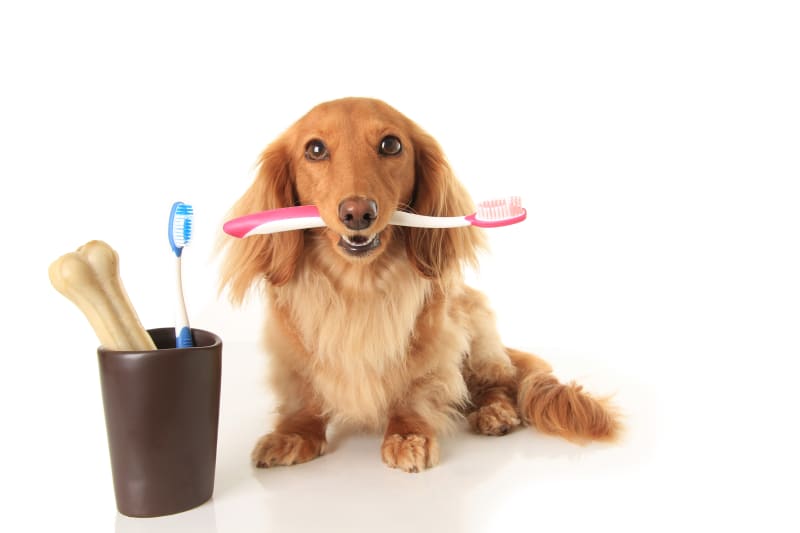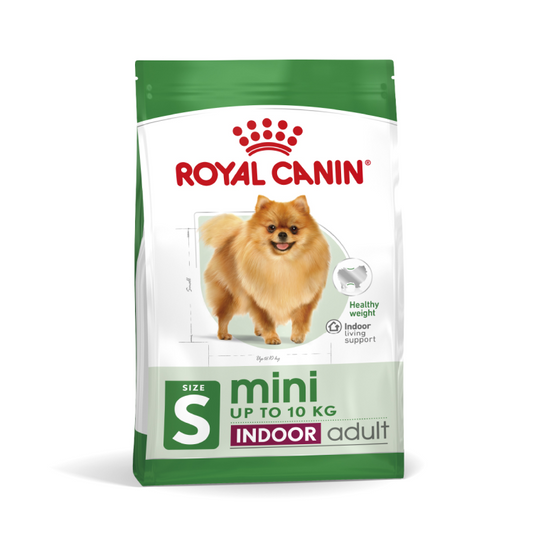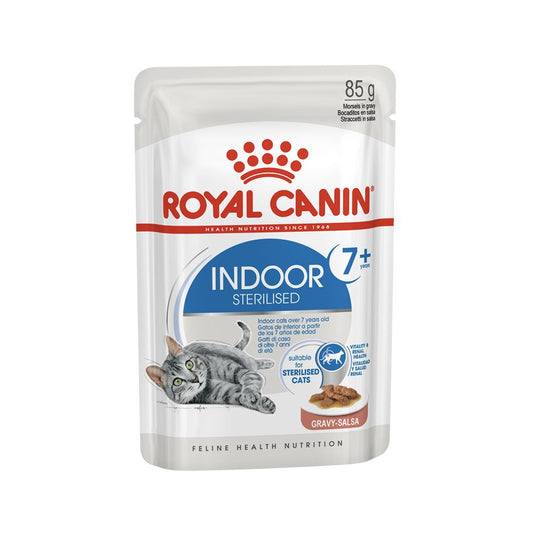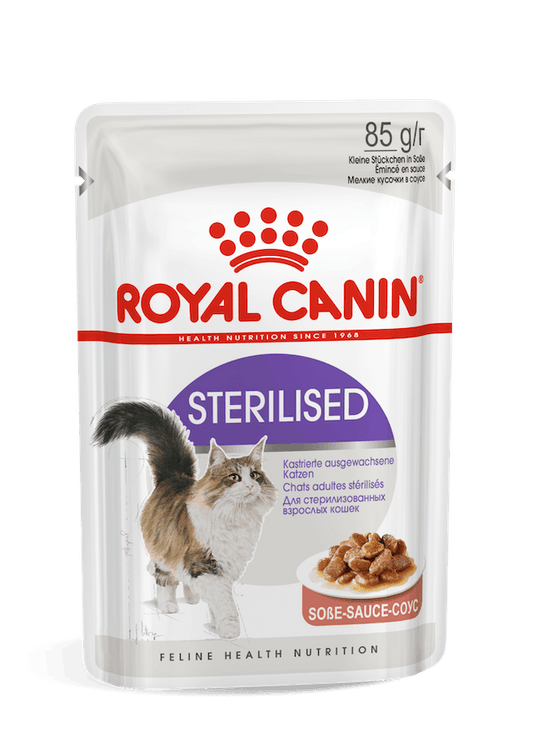Keeping your dog's teeth and gums healthy is important for their overall well-being, but some dental issues can often go unnoticed until they become serious.
In this guide, we’ll explore common Symptoms of dental problems in dogs.
By staying informed and proactive, you can ensure that your furry friend enjoys a healthy, happy smile for years to come.
|
Table of Content: 1) What are the causes of Oral health problems in Dogs? 2) Some common Symptoms for Dental issues in Dogs. 3) Tips to prevent dental problems in Dogs 4) Understanding the link between Oral health and Overall Well-being of Dogs. 5) Frequently asked Questions. 6) Conclusion |
What are the causes of Oral health problems in Dogs?
1) Plaque and Tartar Buildup: Accumulation of bacteria and food particles forms plaque, which hardens into tartar, leading to gum disease.
2) Tooth Decay: Bacterial infections and poor diet can lead to cavities and other forms of tooth decay.
3) Dental Injuries: Chewing on hard objects, accidents, or trauma can cause broken or cracked teeth.
4) Genetic Factors: Certain breeds are more susceptible to dental problems due to genetic factors.
5) Poor Diet: Inadequate nutrition or inappropriate food choices can impact oral health.
6) Lack of Dental Care: Neglecting regular brushing and dental check-ups can contribute to the development of oral health issues.

Some common Symptoms for Dental issues.
-
Bad Breath: Foul breath often indicates plaque buildup, gum disease, or infections. It’s a clear sign that dental issues may be present.
-
Difficulty Eating: Reluctance to chew or eat can signal dental pain from loose teeth, sore gums, or infections. Watch for signs of discomfort during meals.
-
Loose or Missing Teeth: Teeth that are loose or missing typically result from severe gum disease or trauma. This can cause significant pain and affect eating.
-
Excessive Drooling: Increased drooling, especially with bleeding, can suggest oral pain or severe dental issues. It may indicate difficulty swallowing or discomfort.
-
Oral Discharge: Pus or blood in the mouth points to infections or abscesses. Immediate veterinary care is needed to address these serious dental problems.
-
Chewing Odd Objects: Chewing on unusual items may be a sign of dental discomfort. Your dog might be trying to relieve oral pain or irritation.
Tips to prevent dental problems
-
Regular Brushing: Brush your dog's teeth daily or at least several times a week using a toothbrush and toothpaste specifically designed for dogs. For Small dogs Beaphar has got you covered with its Finger toothbrush.

-
Dental Chews and Toys:Provide dental chews and toys that help reduce plaque and tartar buildup while also satisfying their chewing instincts.
-
Healthy Diet:Feed a balanced diet that supports dental health. Consider dog foods or treats formulated to reduce plaque and tartar.
-
Routine Veterinary Check-Ups:Schedule regular vet visits for professional dental cleanings and check-ups to catch and address potential issues early.
-
Oral Health Products:Use oral health products like dental wipes, gels, or water additives that help maintain oral hygiene and freshen breath. Some highly recommended products are Beaphar’s Tooth gel and Bioline’s Dental water.
-
Monitor Oral Health:Regularly check your dog’s mouth for signs of dental issues, such as bad breath, swollen gums, or loose teeth, and address any concerns promptly.
-
Avoid Hard Objects:Refrain from giving your dog hard objects to chew on, which can cause dental injuries or fractures. Opt for safe, dog-friendly toys like Dog Chews.

Understanding the link between Oral health and Overall Well-being of Dogs.
-
Systemic Health Implications: Poor oral health can lead to bacteria entering the bloodstream, potentially affecting other organs such as the heart, liver, and kidneys. Conditions like endocarditis (heart valve infection) and kidney disease can be exacerbated by chronic oral infections.
-
Pain and Discomfort:Dental issues such as gum disease, tooth decay, or abscesses can cause significant pain and discomfort. This discomfort can impact your dog’s quality of life, leading to reduced activity levels, changes in behavior, and difficulty eating.
-
Nutritional Health:Dental problems can affect a dog’s ability to chew food properly, leading to nutritional deficiencies. Difficulty eating may result in weight loss or inadequate intake of essential nutrients.
-
Behavioral Changes:Pain from dental issues can lead to behavioral changes, such as irritability, aggression, or withdrawal. Your dog might become less social or playful due to discomfort.
-
Prevention of Severe Health Issues:Early intervention in dental issues can prevent more severe health problems, such as advanced periodontal disease or tooth loss, which can complicate overall health.
-
Overall Comfort and Health: Good oral hygiene contributes to overall comfort and reduces the risk of complications that can affect a dog’s overall health. Healthy teeth and gums promote a healthier mouth, less pain, and fewer infections.

Here are some frequently asked questions:
1) How often should I brush my dog's teeth?
Ideally, daily. Several times a week is also beneficial.
2) What type of toothbrush and toothpaste should I use?
Use a toothbrush and toothpaste specifically made for dogs like Bheaphar’s toothbrush and toothpaste combipack.
3) Are dental chews and toys effective?
Yes, they help reduce plaque and tartar buildup.
4) How often should my dog have a professional cleaning?
Typically once a year, but this can vary based on your dog's needs.
5) Can I use human toothpaste for my dog?
No, use toothpaste made specifically for dogs.
6) Are there helpful foods or treats?
Yes, some are formulated to reduce plaque and tartar. Look for the VOHC seal.
7) How can I check my dog's teeth at home?
Gently lift their lips to check for signs of plaque, swelling, or loose teeth.
Conclusion
Early detection of dental problems in dogs is key to maintaining their health and comfort. By watching for signs like bad breath, trouble eating, and gum issues, you can address problems early. Regular dental check-ups and good oral hygiene practices will help keep your dog’s teeth and gums healthy, preventing pain and more serious health issues.






